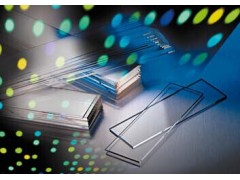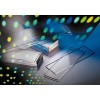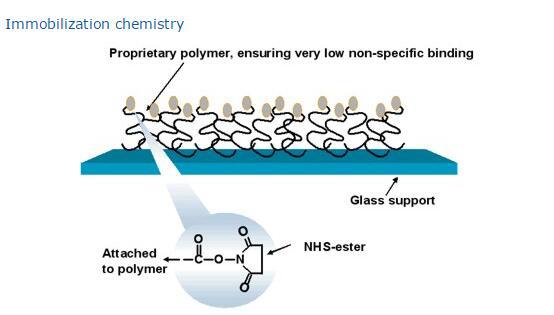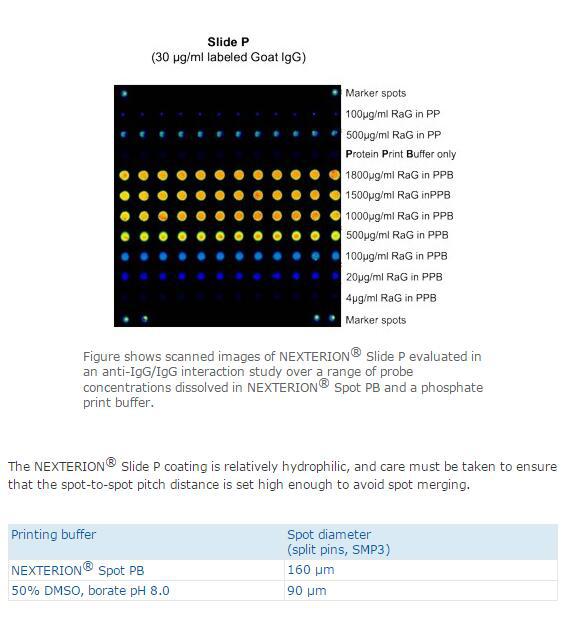      |


|
Type of coating |
Immobilization method |
Typical probes |
Ordering information | |||
|
NEXTERION® product |
Barcode option |
Item number |
Slides per pack |
|||
|
3-D polymer surface |
Amine reactive
chemistry |
Antibodies | Slide P | Laser | 1167904 | 25 |
| Key product features |
| • Optimised substrate for printing low density antibody microarrays |
| • High probe loading capacity |
| • Extremely low non-specific binding characteristics |
| • Superior performance for analysis of serum samples |
| • High probe loading capacity |
| • Compatible with all common microarray printers and scanners |
| Typical applications |
| • Validation of serum protein profiles |
| • Target / biomarker identification |
| • Proteome expression profiling |
| • Target / biomarker validation |
| • Protein expression profiling |
| • oncoproteomic profiling |
| • Cytokine quantification |
| • Profiling disease states |
| • Sandwich assays |
| Suitable probe types |
| • Polyclonal antibodies |
| • Monoclonal antibodies |
| • Recombinant antibodies |
| • Recombinant antibody fragments (scFab, scFv, etc.) |

The coating on the SCHOTT NEXTERION® Slide P is a three-dimensional, hydrophilic polymer activated with N-Hydroxysuccinimide (NHS) esters to provide covalent immobilisation of amine groups. All NEXTERION® microarray slides are manufactured from a high quality, low-fluorescence glass coated with low-fluorescence coatings. However the non-specific binding of assay components, especially from serum samples, still remains an important contributor to the off feature background for many microarray applications. For most types of slide coatings the post-print processing protocol involves a method of adsorptive blocking to reduce non-specific binding; however these procedures are difficult to perform in a consistent manner.
The NEXTERION® Slide P coating has been engineered to exhibit an extremely low intrinsic non-specific background without the need for blocking. This was achieved by using a special polymer that is extremely resistant to non-specific binding. During in-house tests run by SCHOTT, NEXTERION® Slide P had the lowest background signal of any microarray slide coating ever tested. The polymer coating has a three-dimensional structure; with NHS-ester reactive groups attached to the hydrophilic polymer layer. The surface-exposed amino-groups on the antibodies react immediately and irreversibly with the NHS-ester groups forming covalent bonds. The polymer coating maintains the immobilised antibodies in a quasi-liquid environment that maintains their functionality and specificity. The polymer, combined with the end-point attachment, orients the immobilized bio-molecules away from the glass facilitating the interactions of the attached antibodies with the target antigens in the assay sample.
Product details

| Protocol step | Recommended NEXTERION®products | Alternatives | Recommended concentrations |
| Spotting | NEXTERION®Spot PB |
150 mM Phosphate, pH 8.5, 5 % Glycerol, 0.1 mg/ml BSA, 0.01% Sarcosyl or Tween 20® 1× phosphate-buffered saline (PBS) (Gibco/Invitrogen) pH 7.4 with 0.5% Tween 20® 1× phosphate-buffered saline (PBS) (Gibco/Invitrogen) pH 7.4 with 0.5% trehalose (added immediately before printing) |
|
| Chemical deactivation of unreacted NHS-esters | - | 50 mM ethanolamine in 50 mM sodium borate buffer pH 8.0 – 9.0 | |
| Incubation | - | 137mM NaCl, 2.7mM KCl, 4.3Mm Na2HPO4, 1.4mM KH2PO4, pH 7.5 with 0.5% Tween20® |